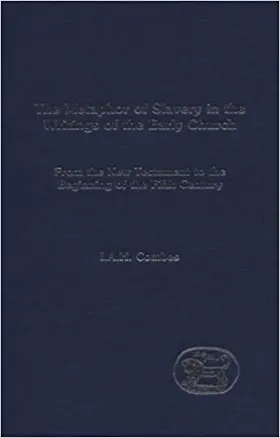

The Metaphor of Slavery in the Writings of the Early Church: From the New Testament to the Beginning of the Fifth Century
in Library of New Testament Studies
Pages
216
Publisher
T&T Clark
Published
1/1/1997
ISBN-13
9780567561824
This book traces the development of the metaphor of the believer as a slave of God from pre-Christian literature through the New Testament and up to the beginning of the fifth century. Although the metaphor emerged from a certain social milieu, it rapidly took on a theological significance of its own; eventually it had only the loosest of links with the social reality of slavery. This theological significance was primarily dependent on the context in which it was used, and thus the metaphor could be used to express a number of very different ideas-from that of devoted obedience to God, to that of foolishness and lack of spiritual maturity. This varied, and often contradictory, use of the metaphor in the Early Church shows the dangers of too great a reliance on social context in the understanding of religious language and opens up the possibilities for a more ambitious use of religious metaphor in modern theology and liturgy.